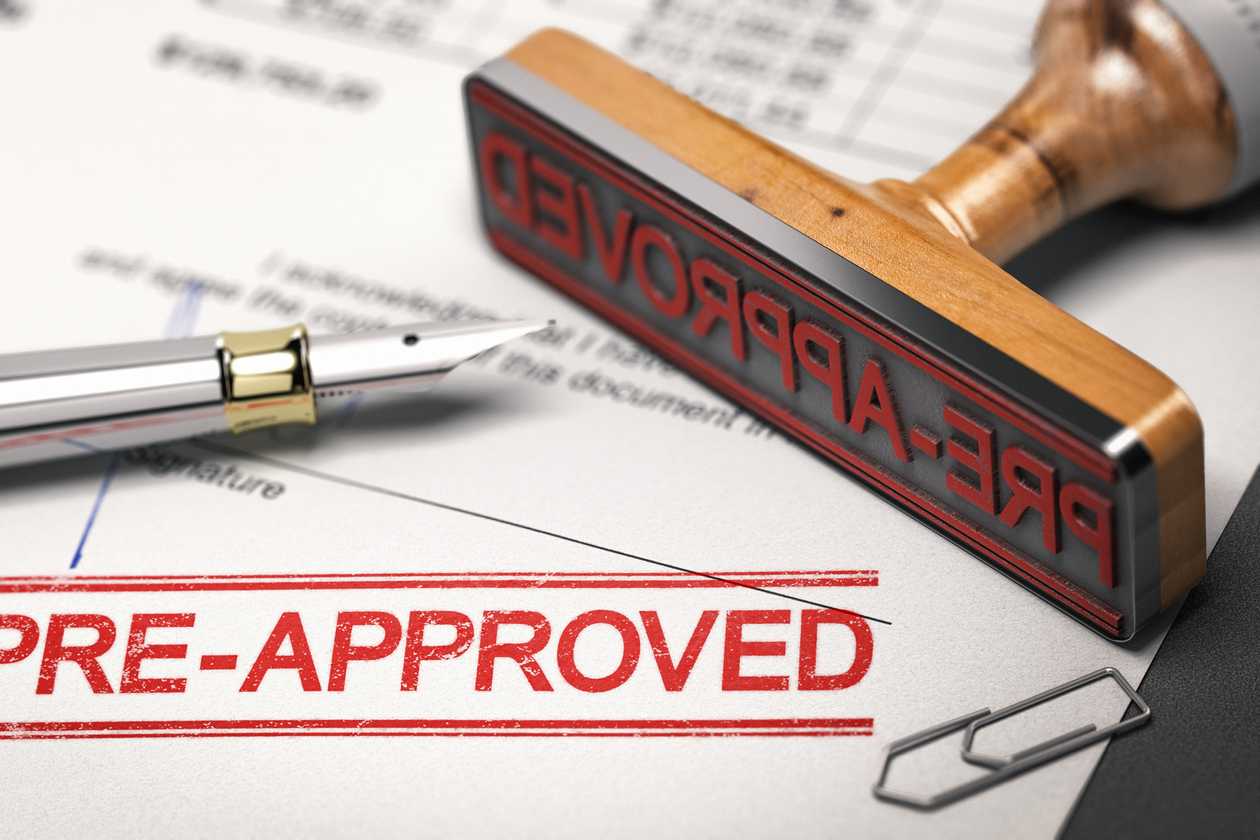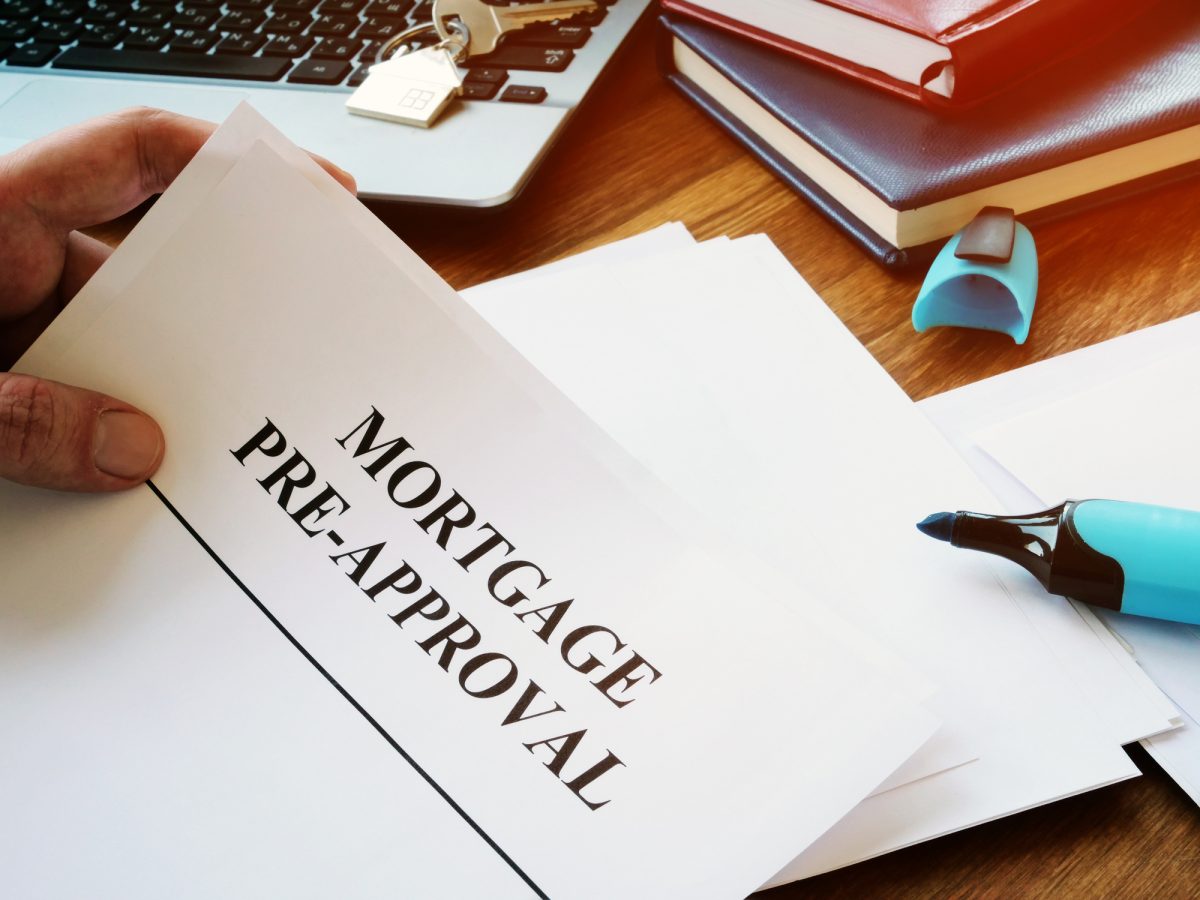A Mortgage Pre-approval is the most important part when an individual buys a home. if a homebuyer is pre-approved, it means that the mortgage lender has stated that they qualify for the Mortgage Loan based on the information they have provided and subject to certain conditions. A Mortgage Pre-approval shows sellers they can afford to purchase a home and gives an idea of how much they will pay monthly and the closing table. The Mortgage Pre-approval lets homeowners shop smarter and make stronger offers.
A Mortgage Pre-approval often specifies mortgage terms, rate of interest, and principal amount. A Mortgage Pre-approval is a letter from the mortgage lender indicating the type and amount of mortgage loan they can qualify for. The Mortgage Pre-approval letter is issued after the lender has evaluated the financial history including pulling their credit report and score. Getting Mortgage Pre-approval for a Mortgage helps individuals shop for homes within their means and shows they are serious homebuyers.
The Mortgage Pre-approval is the process of determining how much money the homeowners borrow to buy a Home. During the Mortgage Pre-approval process, the mortgage lenders look at their income, assets, and credit score. This information determines what mortgage loans they could be approved for, how much they can borrow, and what their interest rate might be. Getting Mortgage Pre-approved also helps homeowners to find a Mortgage Lender that can work with them to select a Mortgage Loan with an interest rate and other mortgage terms suited to their needs.
What Is Mortgage Pre-approval?
A Mortgage Pre-approval is a letter from a Mortgage Lender saying that it is tentatively willing to lend them a specific amount for a House. Mortgage Pre-approval is the written verification from the mortgage lender that they qualify for the Mortgage Amount they have applied for, based on a review of their credit history, credit score, income, and assets. The Mortgage Pre-approval letter gives an estimate of how much they can borrow based on what they tell about their income, debts, and assets. Getting Pre-approved for the Mortgage is a crucial step and the home purchase process. Sellers often want to see a Pre-Approval letter before accepting their offer on their homes. The Process of applying for Mortgage Pre-approval is relatively quick and simple. A Mortgage Pre-approval is the lender’s conditional approval for the home loan in the form of a Pre-approved letter. It lets the home sellers know that they will likely be approved for a certain amount of financing, based on the information they provided in their Preapproval application.
What Are the Benefits of Mortgage Pre-approval?
The Mortgage Pre-approval has several benefits such as:
- It is easier to shop: The Mortgage Pre-approval makes house hunting easier for homebuyers and real estate agents. Many real estate agents require homeowners to be preapproved before they shop for a home. The Mortgage Pre-approval process gives a much better idea of how much house they can truly afford, so even if their agent does not require them to get one, then it’s generally a good idea.
- Shows sellers they are the serious buyers: Acquiring the Mortgage Pre-approval signifies that a mortgage lender has conducted a comprehensive assessment of their financial qualifications and is ready to offer the required funds for the home purchase. This formal approval enhances their credibility in the real estate market, potentially giving their offer a competitive advantage and demonstrating a dedicated and prepared stance in the home buying process.
- Makes the offer Stronger: For borrowers who are shopping in the competitive housing market or first-time home buyers Mortgage Pre-approval is crucial to getting their offer accepted. Sellers are not just looking for the highest offer. They are also looking for offers that are not likely to fall through. The mortgage Pre-approval process tells homebuyers they can get financed for the amount they have offered.
- It Makes the Closing Process Faster: Ensuring that the starting stage of the Mortgage application has already been completed allows for a more streamlined and efficient closing as much of the required financial documentation and assessment have already been addressed during the Mortgage Pre-approval stage reducing potential delays in finalizing the Mortgage.

What Factors are Affecting the Mortgage Pre-approval
Here are some factors that affected the Mortgage Pre-approval process.
- Debt-to-income Ratio: The debt-to-income Ratio (DTI) is the total debt payments divided by gross monthly income. If DTI is too high then it could be indicated that the borrowers are over-extended financially. Most Mortgage Lenders like to see a DTI of 43% or less.
- Down Payment: The upfront money homeowners put towards the mortgage down payment affects how much they will pay for the Loan. Homebuyers usually get better loan terms if they make Down Payments between 10% and 20%. For Conventional Mortgage Loans making a down payment of at least 20% can help avoid PMI Payments as well.
- Credit Score: The homebuyer’s credit score and history help a mortgage lender determine whether they qualify for the mortgage loan within its underwriting structure as well as the Mortgage rate they will receive.
- Income Report: The homebuyer’s lender will check the income report to assess the likelihood that they will be able to afford the mortgage payment. Generally, mortgage lenders likely want to see that their housing costs don’t exceed 28% of gross income.
- Employment History: The homebuyer’s lender will also look at their employment history. They also want to see if they had frequent gaps in employment, work on commission, or recently started a new job.
What Documents Are Required To Get Mortgage Pre-approval?
The Mortgage Lenders will want to verify the homebuyer’s identity, credit history, employment history, income, and financial assets to issue the Mortgage Pre-approval. They will likely ask to fill out a uniform residential loan application. To get the Mortgage Pre-approved the homeowners need to provide their lender with financial documents for them to review as part of their application. These include, but are not limited to:
- Bank Accounts, Retirement, and Other Accounts
- Any other Assets homeowners have
- Property they own
- Income and employment details
- Employer contact information
- Debts they owe or other liabilities
How To Get Pre-Approved For A Mortgage
Before obtaining the Mortgage Pre-approval, the homebuyers need to verify their financial information and get a Loan Estimate. Let’s walk through every step and review the parts of the Mortgage Pre-approval process they will be responsible for:
Gather all the Documents: The Mortgage Pre-approval process is essentially the Mortgage Application process. This means that a Mortgage lender or Mortgage loan officer will want to take a comprehensive look at their finances and Debt-to-income Ratio (DTI). The homeowners need to be prepared to provide information on the Following:
- Proof of income
- Employment history and possible verification
- Proof of assets
- Credit history
- Identification
Before starting the Mortgage Pre-approval process, the Borrowers need the necessary documents to ensure the process goes smoothly. Here are some of the documents they should have on their Mortgage Pre-approval checklist:
- Tax Returns
- W-2 Statements`
- Pay Stubs
- Bank Statements
- Driver’s License
- Social Security Number
Know When to Get A Mortgage Pre-approved: The Mortgage Pre-approved is not just for the Mortgage Lender. Knowing how much they can expect to take out is also highly beneficial to homeowners and it can also help them narrow down and focus on their best options. The best time to get the Mortgage Pre-approved is at the start of the home-buying journey. If the borrowers are ready, apply early to see their Mortgage Loan Options and show agents that they are serious home buyers.
Get Their Early Credit Score Checked: The Mortgage Pre-approval usually requires a hard injury to their credit. While this may cause their credit score to drop slightly, getting Pre-Approved for the Mortgage won’t hurt their Credit score significantly. Subsequent inquiries from other Mortgage Lenders typically within 30 days won’t affect their credit score at all.
Receive the Mortgage Pre-approval Letter: After getting the Mortgage Pre-approval, the homebuyers will get the Pre-approved letter. There are a few reasons the Mortgage Pre-approved letter is important. The real-estate agents typically won’t see the Mortgage Pre-approval letter before they show them houses. This ensures they don’t waste time showing them homes outside their budget. The Mortgage Pre-approval letter is something the homeowners can share with home sellers when they make an offer.
Understand How Long the Mortgage Pre-approval Lasts: The Mortgage Pre-approval does not last forever. The homeowners need to check their expiration date and keep it in mind as they look at their homes. It varies from lender to Lender However, the Mortgage Pre-approval is typically valid for 60 to 90 days. If the homeowners have not settled on a house, they can request a renewal. This is done by giving their lender the most up-to-date financial and credit information.
Frequently Asked Questions (FAQs)
Question 1: Why should I get Mortgage Pre-approval?
Answer: The Mortgage Pre-approval is beneficial for homebuyers for a number of reasons. It helps Homeowners search for homes within their budget, making for a smoother and more efficient house-hunting process.
Question 2: What Factors are considered for the Mortgage Pre-approval?
Answer: In order to Get a Mortgage Pre-approval the Mortgage lender will verify the homebuyer’s credit score, income, and employment details. They will also consider their Debt-to-income Ratio (DTI). This is the calculation of their total monthly debts divided by monthly income. This ratio, expressed as the percentage helps the Mortgage Lenders to make sure they have enough income to reasonably cover their debts.
Question 3: Will I get Mortgage Pre-approval with a Bad Credit Score?
Answer: The credit score needed to buy a house depends on the type of Mortgage loan they are looking to get. The Conventional Mortgage loan typically requires a credit score of 620, however, the FHA Mortgage Loan requires a Credit score of 580. If the Credit Score is below or minimum they may not get approved for the Mortgage Pre-approval process. However, the homeowners can still get approved for Mortgage Pre-approval with a Bad Credit score. The chance of getting approved for a Mortgage can increase with bigger Down Payments or low DTI.
Question 4: What Happens If My Mortgage Pre-approval Expires?
Answer: Most Mortgage Pre-approval letters expire after 90 days and after that, the homeowners need to reapply and go through the verification process again. The Mortgage Landers have the Mortgage Pre-approval date to ensure no significant changes occur to their income, debt, or credit.
The Bottom Lines
The Mortgage Pre-approval is the first step of buying a Home. Once the financial information is verified then the homeowners have a clear idea of how much they can afford. Getting a Mortgage Pre-approved before starting the house hunt benefited everyone involved.
